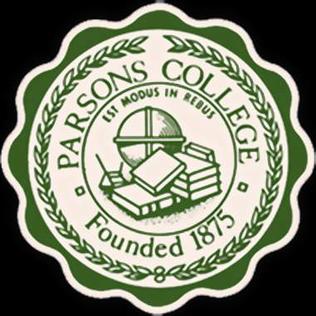Related Research Articles

John Samuel Hagelin is the leader of the Transcendental Meditation (TM) movement in the United States. He is president of the Maharishi University of Management (MUM) in Fairfield, Iowa, and honorary chair of its board of trustees. The university was established in 1973 by the TM movement's founder, Maharishi Mahesh Yogi, to deliver a "consciousness-based education".

Transcendental Meditation (TM) is a form of silent mantra meditation developed by Maharishi Mahesh Yogi. The TM technique involves the use of a silently-used sound called mantra, and is practiced for 15–20 minutes twice per day. It is taught by certified teachers through a standard course of instruction, which costs a fee that varies by country. According to the Transcendental Meditation movement, it is a non-religious method that promotes relaxed awareness, stress relief, self-development, and higher states of consciousness. The technique has been seen as both religious and non-religious.

Fairfield is a city in, and the county seat of, Jefferson County, Iowa. It has a population of 9,416 people, according to the 2020 census. The median family income is $46,138, with 10% of families below the poverty line.

Maharishi Mahesh Yogi was the creator of Transcendental Meditation (TM) and leader of the worldwide organization that has been characterized in multiple ways, including as a new religious movement and as non-religious. He became known as Maharishi and Yogi as an adult.

Maharishi International University (MIU), formerly Maharishi University of Management, is a private university in Fairfield, Iowa. It was founded in 1973 by Maharishi Mahesh Yogi and practices a "consciousness-based education" system that includes the Transcendental Meditation technique. Its founding principles are the development of the full potential of the individual, fulfilling economic aspirations while maximizing proper use of the environment and bringing spiritual fulfillment and happiness to humanity.
Maharishi Vedic Approach to Health (MVAH) is a form of alternative medicine founded in the mid-1980s by Maharishi Mahesh Yogi, who developed the Transcendental Meditation technique (TM). Distinct from traditional ayurveda, it emphasizes the role of consciousness, and gives importance to positive emotions. Maharishi Ayur-Veda has been variously characterized as emerging from, and consistently reflecting, the Advaita Vedanta school of Hindu philosophy, representing the entirety of the ayurvedic tradition.

The Transcendental Meditation movement (TM) are programs and organizations that promote the Transcendental Meditation technique founded by Maharishi Mahesh Yogi in India in the 1950s. The organization was estimated to have 900,000 participants in 1977, a million by the 1980s, and 5 million in more recent years.

Maharishi Vedic City (MVC) is a city in Jefferson County, Iowa, United States. The population was 277 at the time of the 2020 census. The city was incorporated in 2001 as "Vedic City" but then officially changed its name to "Maharishi Vedic City" five months later. It was the first city to incorporate in Iowa since 1982. Maharishi Vedic City consists of approximately one square mile, located about four miles north of Fairfield, the home of Maharishi University of Management.

A. Nathaniel ("Nat") Goldhaber is an American venture capitalist, computer entrepreneur and politician. Goldhaber helped found Maharishi International University and was special assistant to lieutenant governor William Scranton III and founder and chief executive of TOPS, a computer networking company. He served as president of the venture capital firm Cole Gilburne Goldhaber & Ariyoshi Management and was the founding CEO of CyberGold, an Internet marketing company that became a public stock offering in 1999. He was the 2000 U.S. Vice President candidate for the Natural Law Party and serves as the managing director of Claremont Creek Ventures, an investment firm.

Parsons College was a private liberal arts college located in Fairfield, Iowa. The school was named for its wealthy benefactor, Lewis B. Parsons Sr., and was founded in 1875 with one building and 34 students. Over the years new buildings were constructed as enrollment expanded. The school lost its accreditation in 1948 but regained it two years later. In 1955 the school appointed Millard G. Roberts as its president and this began a period of rapid expansion with the student population rising as high as 5,000 by 1966. There was a turning point, however, in 1966 when Life magazine published an article criticizing the college and its president. In the spring of 1967, the school lost its accreditation and Roberts was asked to resign as president. Although they regained their accreditation in the spring of 1970, enrollment had quickly declined and the college floundered with $14 million in debt and closed under bankruptcy in 1973.

Maharishi Vastu Architecture (MVA) is a set of architectural and planning principles assembled by Maharishi Mahesh Yogi derived from the branch of India's ancient Vedic texts known as Sthāpatya Veda or Vāstu Vidya, the "knowledge of architecture". Maharishi Vastu Architecture is also called "Maharishi Sthapatya Veda", "Fortune-Creating" buildings and homes, and "Maharishi Vedic architecture".

Maharishi School is an independent, non-denominational, college preparatory school located in Fairfield, Iowa, USA.The school was founded in 1974, received state accreditation in 1986 and began single-gender classes in 1989. It is located on a 10-acre campus within the main campus of the Maharishi University of Management.

Maharishi Mahesh Yogi Vedic University, also known as Maharishi Mahesh Yogi Vedic Vishwavidyalaya (MMYVV), is an accredited, statutory Private university located in Katni, Madhya Pradesh, India. It is part of the Maharishi Educational System and was established by the state legislature in 1995. It offers both graduate and undergraduate degree programs.
David W. Orme-Johnson is a former professor of psychology at Maharishi University of Management in Fairfield, Iowa. He is the author of over 100 papers investigating the effects of the Transcendental Meditation technique.
Bevan H. Morris was the president of Maharishi University of Management in Fairfield, Iowa, for 36 years and a founder of the Natural Law Party.
The History of Transcendental Meditation (TM) and the Transcendental Meditation movement originated with Maharishi Mahesh Yogi, founder of the organization, and continues beyond his death (2008). In 1955, the Maharishi began publicly teaching a traditional meditation technique learned from his master Brahmananda Saraswati, which he called Transcendental Deep Meditation, and later renamed Transcendental Meditation.

Maharishi Peace Palace is a type of pre-engineered building designed to house the educational and meditational activities of the Transcendental Meditation movement. Each Peace Palace is built using standardized plans compatible with Maharishi Sthapatya Veda design principles.
The Transcendental Meditation technique is the technique associated with the practice of Transcendental Meditation developed by the Indian spiritual figure Maharishi Mahesh Yogi. The practice involves the use of a private mantra, and is practised for 20 minutes twice per day while sitting comfortably with one's eyes closed. Unlike some other approaches to meditation, TM instruction encourages students not to be alarmed by random thoughts which may arise, but to easily return to the mantra when one becomes aware of this.

The Golden Domes, also called the Maharishi Golden Domes, are twin buildings on the campus of Maharishi International University (MIU) in Fairfield, Iowa, United States, built in 1980 and 1981. According to MIU, the Golden Domes were the first structures built specifically for group meditation and the practice of the TM-Sidhi program. In 2001 and 2005 they received additional construction including landscaping, perimeter fencing and new entrances.
Transcendental Meditation in education is the application of the Transcendental Meditation technique in an educational setting or institution. These educational programs and institutions have been founded in the US, United Kingdom, Australia, India, Africa and Japan. The Transcendental Meditation technique became popular with students in the 1960s and by the early 1970s centers for the Students International Meditation Society were established at a thousand campuses in the US with similar growth occurring in Germany, Canada and Britain. The Maharishi International University was established in 1973 in the US and began offering accredited, degree programs. In 1977 courses in Transcendental Meditation and the Science of Creative Intelligence (SCI) were legally prohibited from New Jersey (USA) public high schools on religious grounds by virtue of the Establishment Clause of the First Amendment. This "dismantled" the TM program's use of government funding in U.S. public schools "but did not constitute a negative evaluation of the program itself". Since 1979, schools that incorporate the Transcendental Meditation technique using private, non-governmental funding have been reported in the US, South America, Southeast Asia, Northern Ireland, South Africa and Israel.
References
- 1 2 3 4 5 6 7 Barnett, Antony (May 2, 2004). "Trouble in transcendental paradise as murder rocks the Maharishi University: Antony Barnett reports on the killing that has shocked the Beatles' guru's college campus". The Observer. London (UK). p. 3.
- 1 2 Jim O'Neal, "Student expelled before murder",Cedar Rapids Gazette, March 4, 2004, final edition, p. 2, section B
- ↑ Kelley, Janet (March 3, 2004). "Country Day grad charged in Iowa killing; Landisville man accused of unprovoked attack in university dining hall". Lancaster New Era. Lancaster, Pa. p. 1.
- ↑ Frank, Thomas (2007-06-12). "Campus security flaws a pattern in slayings". USA TODAY.
- ↑ Gable, Erik (March 5, 2004). "Reporting policies vary at Iowa's private colleges". The Fairfield Ledger.
- ↑ Owens, Nancy K. (October 26, 2005). "Man Fails to Fly, Sues Camelot Owner". Greater Tulsa Reporter.
- ↑ Associated Press (November 24, 2004). "Trial set for former student charged in hall stabbing". The Hawk Eye. Burlington, Iowa. p. 5A.
- 1 2 Associated Press (January 8, 2009). "University expected to settle lawsuit over death". Chicago Tribune.
- ↑ Gable, Erik (June 15, 2005). "Judge enters 'not guilty' verdict in murder case". Fairfield Ledger. Fairfield, Iowa. Retrieved December 24, 2009.
- 1 2 Des Moines Register article, April 22, 2010
- ↑ "Annual Security Report — Fall 2009: Crime Prevention". Archived from the original on June 1, 2010. Retrieved December 23, 2009.
- 1 2 3 4 Frank, Thomas (2007-06-12). "Campus security flaws a pattern in slayings". USA Today. Retrieved 24 December 2009.
- 1 2 Cochrane, Kira (July 25, 2004). "Positive thinking?". Sunday Times. London (UK). p. 39.
- ↑ Milner, Matt (December 22, 2008). "MUM lawsuit heads to federal court in January: Murder victim's family says school is guilty of gross negligence". The Ottumwa Courier.
- 1 2 Lorentzen, Amy (January 9, 2009). "Fairfield university settles lawsuit". The HawkEye.
- ↑ "Ex-county man's attacks focus of lawsuits against university". Lancaster New Era. Lancaster, Pa. March 1, 2006. p. 08.
- ↑ "Settlement apparently reached in MUM student's death" Ottumwa Courier, January 9, 2009